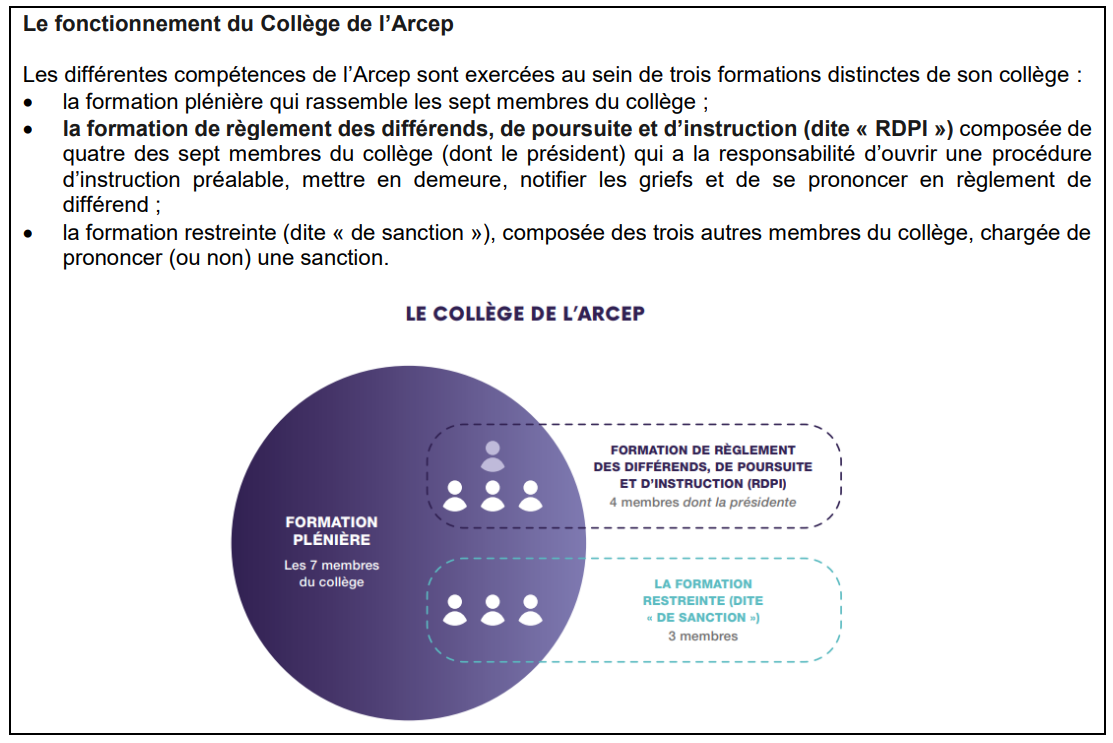In June 2024, the Arcep body responsible for settling disputes, legal proceedings and investigations (hereafter “RDPI”) took cognizance of a request from the firm SFR to settle a dispute it was having with the firm Orange. This dispute concerned the supply of energy for hosting third-party operators’ active equipment in Orange facilities.
As part of its reference offers[1], Orange provides a hosting space solution to install active network equipment belonging to operators hosted on its network in its subscriber access nodes. This solution includes the supply of the energy needed to power this active equipment, which is used to provide copper and fibre broadband and superfast broadband services. This is the context in which SFR, whose active equipment is hosted in Orange facilities, submitted three requests to the Authority.
1. Regarding the SFR request to decrease the controlled load tariff for the periods of mid-2020 to end of 2022 and 2023 to 2024
The Authority concluded that it could not examine the SFR[2] request concerning mid-2020 to end of 2022 as this period predated the request by two years and, in any event, predated the date on which SFR formally raised its objection for the first time.
Regarding the period of 2023 – 2024, the Authority rejected the request, concluding that SFR did not provide sufficient evidence to prove that the Orange controlled load tariffs did not correspond to an efficient operator’s supply costs.
2. Regarding the SFR request to align the controlled load tariff in “collocation facilities” with the one applicable to “dedicated hosting facilities”
The Authority concluded that the two formal warnings that SFR sent to Orange prior to making its dispute settlement request were insufficient, notably in terms of their content, in the absence of other exchanges, to characterise SFR’s desire to engage effectively and in good faith in further negotiations with Orange. As a result, the condition of the admissibility of the request of failed negotiations is considered as not being fulfilled.
3. Regarding the SFR request to decrease the minimum output threshold
The RDPI body ascertained a decorrelation between current thresholds in the Orange output solution and SFR’s actual power output needs. Moreover, the RDPI body ascertained that SFR’s claim regarding this decorrelation was shared by other operators in the sector. This decorrelation could increase over time, with operators’ progressively decreasing energy consumption needs, and the gradual switchoff of the legacy copper network. As a result, the RDPI body concluded that SFR’s request was justified, thereby authorising it to decrease, without fees or penalties, the minimum output threshold per hosting space to 0.5 kW.
The Authority nevertheless rejected the SFR request to adjust the subscription price, as the operator did not provide evidence of coherent analysis, to support its request, on the compared progression of costs and input power in determining cost-based prices for the energy output solution.
This decision is being published with due regard to confidential matters protected by Law.

Associated document:
